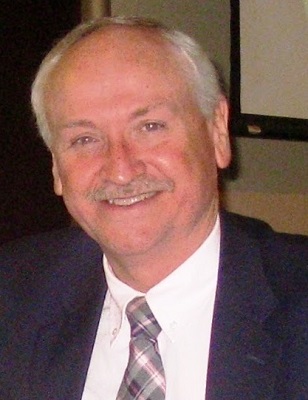Morris Village Alcohol and Drug Addiction Treatment Center
The Morris Village Alcohol and Drug Addiction Treatment Center (Morris Village) is an adult inpatient addiction treatment program under the Division of Inpatient Services of the Department of Behavioral Health and Developmental Disabilities (BHDD) Office of Mental Health (BHDD Office of Mental Health).
What We Provide
Morris Village provides evaluation, medical stabilization, detoxification and inpatient treatment services. Our treatment programs address special gender and cultural needs, as well as, possess the capability to work with patients who suffer from co-occurring disorders (both substance dependence and mental illness).
ABOUT MORRIS VILLAGE
The mission of Morris Village is to provide effective and efficient treatment of alcohol and other drug addictions through comprehensive assessment, safe detoxification, and evidenced based treatment services to the citizens of South Carolina. Our staff respects the dignity and rights of patients and promotes their return to normal, productive lives in their community. We are committed to professionalism, quality, and excellence.
We believe that addiction is a chronic relapsing disease that has serious physical, emotional, social, and spiritual effects. The treatment program is based on the premise that those who suffer from the disease of addition can achieve lifelong abstinence through a program of intensive treatment followed by appropriate community-based aftercare services and ongoing participation in Peer Support programs.

Leadership
George McConnell, Director
George McConnell, a Mount Holly, NC, native, has served as Director of Morris Village for 11 years. “Addictive disease is both a joy and a challenge to treat. The major clinical task has always been, and continues to be, to address a patient’s strong core issue of fear; fear of what life will be and who they will be without the chemical. Once that is addressed and the destructive relationship with the chemical is severed, a person in recovery will soon discover that life is not only livable, but also happy, joyous, and free. Our job at Morris Village is to help people along in that journey,” said McConnell.
McConnell’s educational background includes a Sociology Degree from Belmont Abbey College in Bellmont, NC and a Master’s Degree in Divinity from Duke University in Durham, NC. His past employment includes serving as the Director of Daymark Recovery Services’ Union Center in Monroe, NC, the Director of Constituent Services at the Department of Alcohol and other Drug Abuse Services, and at Keystone Substance Abuse Services in Rock Hill, SC, where he served 15 years as a counselor and the Treatment Director and later became Deputy Director. He now lives in Blythewood, SC and has two grown sons, Dr. Matthew McConnell, a Neurologist in Charlottesville, VA and Zachary McConnell, an attorney in Pittsburg, PA.
STAFF
Our treatment teams provide the direction and leadership for our treatment programming. The teams are composed of addictions counselors, nursing personnel, physicians and activity therapists who provide direct patient services. Psychological testing and assessments are available, and both physicians and nurses provide 24-hour medical coverage.
Morris Village was one of four regionally located mental health facilities envisioned in 1963 by the Governor’s Interagency Council on Mental Health Planning. Although the concept of the village system was to provide geographically accessible treatment closer to the patient’s community, Morris Village was designated as the department of mental health’s sole inpatient facility for the treatment of alcohol and other drug addiction.
In 1968, the Department of Mental Health made a concerted effort at long range planning for Departmental physical needs. As a part of this planning, a partnership was made with the College of Architecture of Clemson University to assist in coordinated planning for the building needs of the department, both short term and long range. Professor George C. Means was the chief coordinator and liaison person for this project.
The Village opened in 1975 to serve patients from throughout the 46 counties of the state of South Carolina. The Morris Village treatment program was an outgrowth of a pilot 56 bed addiction treatment program housed at Crafts-Farrow State Hospital from 1971 until completion of the current facility in 1975. The Village was designed as a typical small residential community. Fourteen cottages (patient living areas) were located on the periphery of the campus, while administrative offices, an infirmary and a library were located in the interior surrounded by a central court yard. In addition, the village contains residential cottages, a physical activities center, learning and resources center, cafeteria, a post office and cashier area, occupational therapy buildings and an assembly hall.
In 1987, the state passed legislation for the involuntary commitment of persons with chemical dependency. Since that time, the mission of Morris Village has evolved to accommodate the needs of persons involuntarily committed to treatment.
In 2004, Morris Village was integrated under the umbrella of Columbia Behavioral Healthcare Services consisting of other public inpatient hospitals in the Columbia Area serving adults and children who are experiencing a variety of behavioral healthcare problems. The purpose for this integration was to more effectively and efficiently integrate care by networking facilities that serve both the mentally ill and chemically dependent patients.
In 2007, Morris Village experienced another management restructuring as it became a facility under the newly reorganized Division of Inpatient Services.
Morris Village Alcohol and Drug Addiction Treatment Center
PHONE: (803) 935-7100
ADDRESS:
610 Faison Drive
Columbia, SC 29203
Administration Office Hours
Monday thru Friday
8:00am – 5:00pm
The administration office is closed during holidays.
Connect With Us
Helpful Links
Do you have a complaint regarding services being provided to a child by a state agency? Please submit your complaint to the South Carolina Department of Children’s Advocacy by phone (1-800-206-1957) or via the electronic submission form.
Notices
Language assistance services are available to you free of charge by calling 1-805-360-3326. Please enter Pin #: 81767494 and be prepared to state your language.
Los servicios de asistencia lingüística están disponibles sin cargo llamando al 1-805-360-3326. Por favor, ingrese su número de pin 81767494 y prepárese para decir su idioma.



